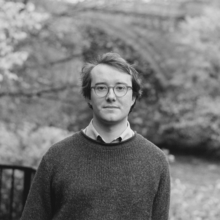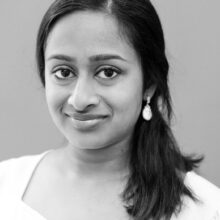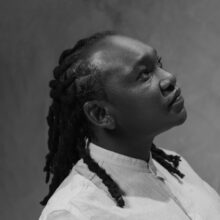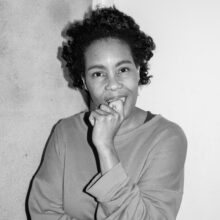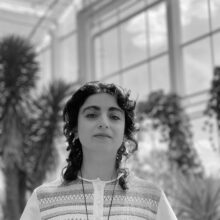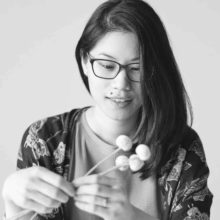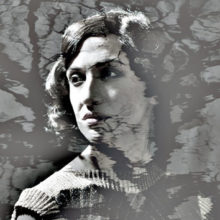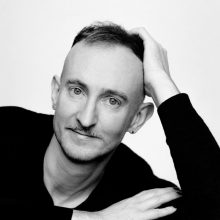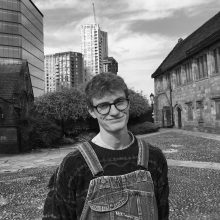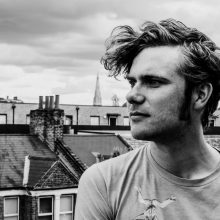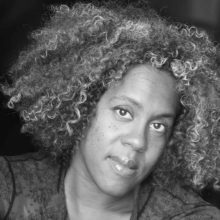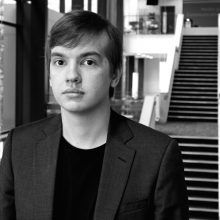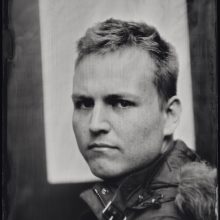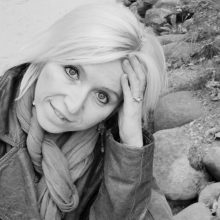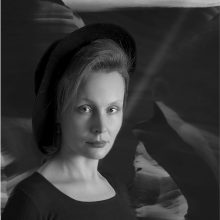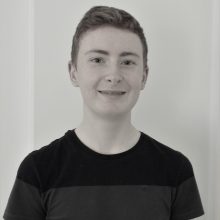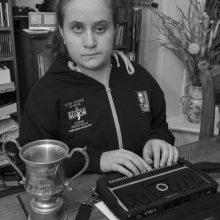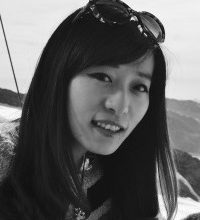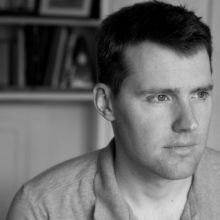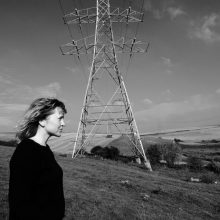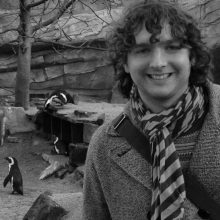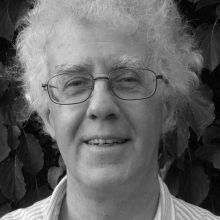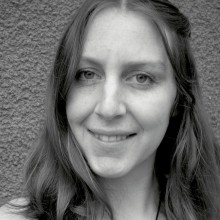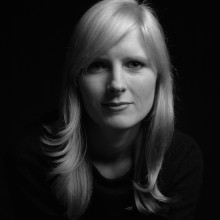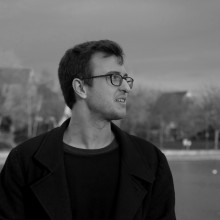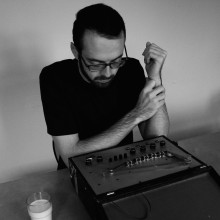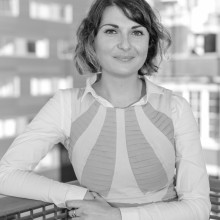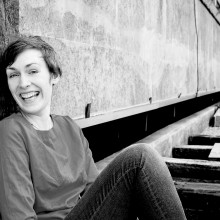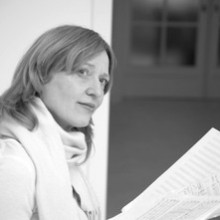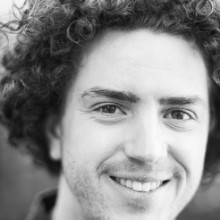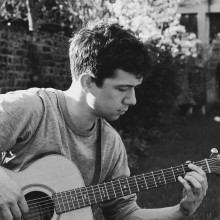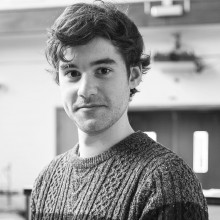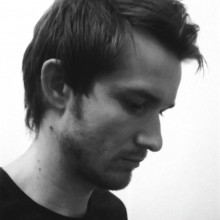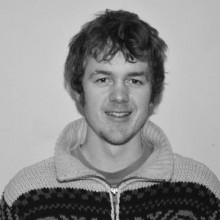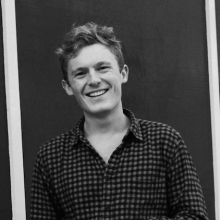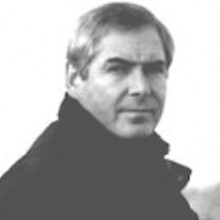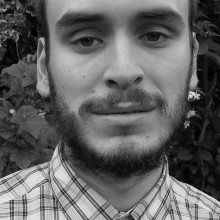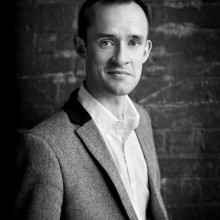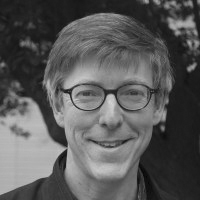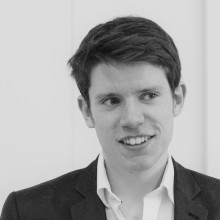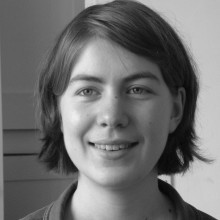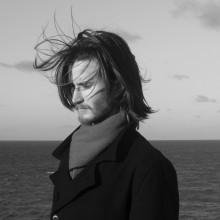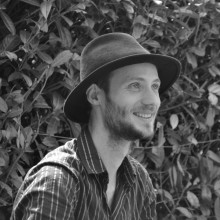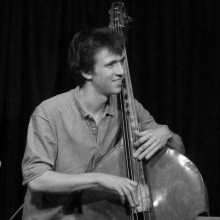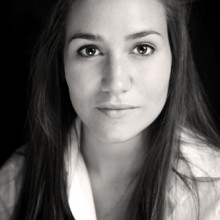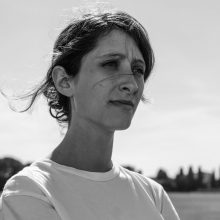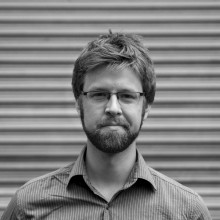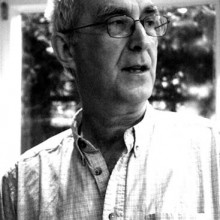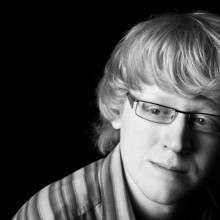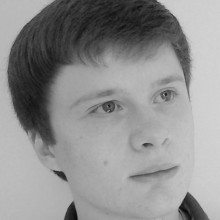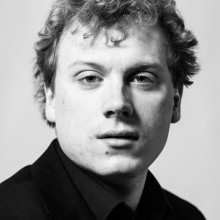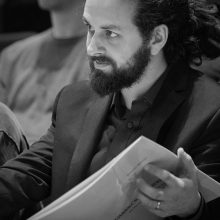
Darren Bloom
Darren Bloom is a composer, conductor, producer and educator. Described in The Times as ‘almost mystical… a genuine frisson’, Darren’s music is noted for its combination of ‘evocative harmony’ and ‘raw power’. His recent chamber symphony Dr. Glaser’s Experiment, commissioned by the London Symphony Orchestra for their 2016 Futures Festival, was praised in theartsdesk.comas a ‘confident answer to the question: How can an orchestra perform the music of the future?’ Darren’s chamber work Strange Attractors was selected by the UK panel of the International Society for Contemporary Music to represent the UK, and his chamber opera KETTLEHEAD was created as part of his second year of residence with the London Symphony Orchestra as a member of the LSO Soundhub Scheme. Recent projects included a curated set for New Dots’ Curiouser event, which incorporated his new work Alice’s Dream Fragments for the Octandre Ensemble, and Borexino-Borealis, a commission from the Park Lane Group for the Borealis Saxophone Quartet. Darren is one of the current winners of the Royal Philharmonic Society Composition Prize resulting in a commission for the 2017 Cheltenham Festival.
Darren is a founding member and conductor/creative producer of the Ossian Ensemble with whom he has given the premieres of dozens of new works over the past decade. Other conducting highlights include a performance of Sir Peter Maxwell Davies’ Five Klee Pictures in the presence of the composer, recording music for BBC4 documentaries, directing several youth new music ensembles, including the Composers Ensemble at Junior Trinity, and working for the past four years as a conductor for the LSO Soundhub Scheme.
Darren studied composition with Edwin Roxburgh, Brian Elias and Sir Peter Maxwell Davies, and conducting with Neil Thompson, Edwin Roxburgh and Christopher Austin. He was awarded a DipRAM and the Manson Fellowship from the Royal Academy of Music as well as recently being appointed an Associate of the RAM. In 2015 he commenced an AHRC funded PhD in Composition at the University of Cambridge under the supervision of Richard Causton.

